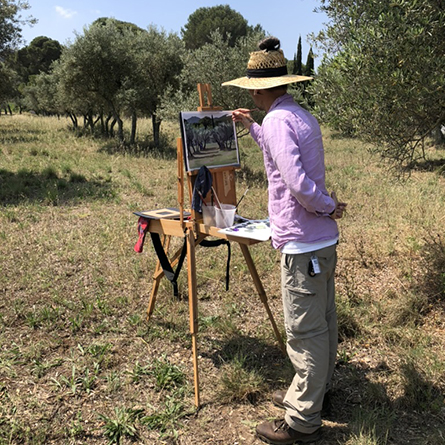
Sick from Freedom: Professor's new book reveals the untold story of African-American illness and suffering during and after the Civil War

It's one of the bitterest ironies in American history, and, until now, it is a story that has remained untold.
In his new book, "Sick from Freedom: African-American Illness and Suffering During the Civil War and Reconstruction," professor Jim Downs reveals that more than 1 million former slaves became sick or died at the moment of freedom. The book's release coincides with the 150th anniversary of the Emancipation Proclamation, announced in September of 1862 and effective Jan. 1, 1863.
Based on a 10-year study of more than 500,000 records, Downs, an assistant professor of history and American studies, is the first to document a smallpox epidemic among newly-freed slaves that left hundreds of thousands dead.
"The Civil War produced the largest biological crisis of the 19th century," Downs said. "Soldiers were infected with smallpox in a few scattered instances, but emancipation triggered widespread movement among ex-slaves that accelerated the spread of the virus. Just as the slaves were getting their first taste of freedom, they were getting sick and dying by the thousands."
The health crisis prompted the federal government to create the country's first system of national health care. At the height of the epidemic, the Medical Division of the Freedmen's Bureau built and operated 40 hospitals throughout the south.
"These hospitals weren't really built on humanitarian grounds, but were intended to identify and support a 'healthy workforce,'" Downs said. "As a result, they weren't really about providing medical care as much as identifying the able-bodied and weeding out those the federal government considered 'dependent,' including women, children and the elderly."
The former slaves were really the first to advocate for the federal government to provide health care to its citizens, Downs said, and this short-lived hospital system serves as an interesting case study into the federal government's role in health care dating back to the 19th century. Relying on documents kept by the Freedmen's Bureau, as well as correspondence between doctors and the federal government, accounts from northern abolitionist groups and military pension records, Downs explores how the smallpox epidemic was worsened by a lack of proper medical care, malnutrition, extreme poverty and often unimaginable living conditions.
While he estimates the death toll to be in the hundreds of thousands, Downs says shoddy record-keeping in black hospitals - and the lack of any access to health care for many freed slaves - makes it difficult to pinpoint a number. It also helps explain why such an important piece of American history is absent from the history books.
"No one talked about black bodies," Downs said.
Some of the richest medical accounts are the military's pension records for black soldiers who served during the war. With support from Connecticut College's President's Fund for Faculty Student Engagement, Downs took then-student Kevin Hartnett '10 to Washington, D.C., to mine those records for insights into the epidemics. Most other records, though, are incomplete at best, Downs said.
"If you were lucky, you'd have a doctor who would check off 'small pox' or another known disease," he said.
Also in the book, Downs argues that the federal government used the reconstruction of the south as a model for dealing with the American Indians in the West. It's a surprising new assertion that caught the attention of Steven Hahn, a professor of American history at the University of Pennsylvania and the 2004 winner of the Pulitzer Prize for History. In his review, Hahn writes that "Sick from Freedom" is "a fresh and ambitious account of the Civil War era that not only interrogates the transition from slavery to freedom in new and unsettling ways, but also invites us to rethink the geographical dimensions of Reconstruction."
Downs hopes "Sick from Freedom" will give general readers, scholars and Civil War buffs a better understanding of the impact of the war on the very population at the center of the dispute. "The extent to which so many families were separated, devastated - that is the story of emancipation," Downs said. "This was a war, and thousands of freed slaves died at the moment of freedom."
Downs will give a book talk at the Barnes and Noble on 82nd and Broadway in New York City on May 31 at 7 p.m. He'll be joined at the event by historian and Pulitzer Prize-winner Annette Gordon-Reed, author of "Thomas Jefferson and Sally Hemings: An American Controversy."
May 16, 2012
